In May 2018, to commemorate 51 years after initial publication, Personville Press will release a 2nd edition of Hanger Stout, Awake. The second edition will include this new preface which I wrote for it.
When author Jack Matthews (1925-2013) talked to me about digitalizing his books, he made clear that the first book he wanted to do was the 1967 novella Hanger Stout, Awake! I had already read most of Matthews’ books (including Hanger) and thought Hanger to be minor compared to later novels and story collections. But Hanger Stout, Awake! was the breakaway book which put Matthews on the American literary map. A major publisher (Harcourt, Brace and World) had published it. It was reviewed positively by Time and New York Times; the great Southern writer Eudora Welty gave it an impressive blurb, and the book was nominated by Antaeus literary journal as one of the “neglected works of the 20th century.”
Wait! Did I miss something when I first read it?
Over time my respect for the novella has deepened.
The novella is about a different era, one that people today might not even recognize. No cell phones, computers, not even much pop culture. It centers around people in a small town and a teenager who works at a gas station. It seems to be a teenage coming-of-age story. But contrary to expectations, Clyde Stout (who is nicknamed “Hanger”) doesn’t grow up or lose his innocence or learn A Very Important Lesson. He becomes interested in a strange new sport called “hanging,” but it doesn’t consume too much of his attention; indeed, he is skeptical about it from the start. He still smarts from romantic disappointment over a girl named Penny, but it’s certainly no Werther-like despair.
The book certainly has incidents and sharply defined characters and dramatic events around the edges, but things mostly proceed without climax or epiphany.
Is that bad?
A short story can evoke a certain locale and still converge at a single point. A novel is expected to be polyphonic: a variety of voices, contrasting perspectives, characters crisscrossing one another’s paths. A novella can do a little of both; this one gives the reader the chance to view the world from a teenager’s perspective during a random week.
Suppose you were tasked with writing an essay about a family after living with them for a week. That’s enough time to get a sense of a household’s dynamics and routines. In a week, you can probably write about: the living space, the conversational rhythms, the daily schedules, the diet, the shared values (and disagreements), the inside jokes and recreational activities.
Paradoxically, although your descriptions of living with this family might be accurate and perceptive, it would still be a static snapshot. People are always changing; they outgrow interests and develop new ones. Decades later, if the family were to read your written account of that week, they might barely recognize themselves. In any small span of time, an outside observer might overlook important things or exaggerate the importance of other things.
Perhaps during your week with this hypothetical family, the teenage girl was sick with a three day flu, the son was preparing for final exams at school, the father had recently been laid off from his job and was job-hunting. These random details would certainly affect your impressions. Mood and stress levels around a household are always fluctuating (even if some values and routines remain constant). During the mercurial teenage years, it’s hard to distinguish between the evanescent and the enduring.
The Hanger story takes place within the span of a week. Is this week special? Maybe, maybe not. If we visited Clyde’s life six months before or ten months later, it’s hard to imagine whether Clyde’s personality or outlook would be noticeably different. If you met Clyde 20 years later, he might even need to be reminded that he once considered himself to be a “competitive hanger.”
Would it have been better for the novella to visit Clyde at several different points in his life?
Hanger Stout, Awake! records just a small amount of time, making it impossible to determine which details are important, and which are ephemeral. From Clyde’s perspective, everything unfolding in his life is interesting and important. This slice of life includes all sorts of tensions or minor anxieties; but they never dominate his attention. Clyde plods on. He has interests and hobbies and relationships he wants to cultivate, but nothing seems especially urgent. Should Clyde be focusing on something else? Should he be changing or maturing any faster?
I don’t think the book is trying to understand the depth of Clyde’s personality or ascribe cosmic significance to his life. Sure, Clyde is interesting and somewhat remarkable, but also ordinary. Instead, the novella is trying to capture the way Clyde absorbs and responds to his world. What does he notice? What does he think about? What excites him? He is observing people and flirting with various notions. He doesn’t seem angry or ambitious or even industrious. Clyde has opinions and guesses, but none of them are strongly-held. Frankly, Clyde is a little bored, but not unhappy.
Capturing the mundane realities of living seems to be a secondary task of literature. What is the value of that? People who write tend to be removed from their subject matter. I once assigned a group of middle school students to write a one page diary about their previous day. Students found the subject boring, but as a teacher I found these miniature diary entries to be fascinating – though certainly not great literature. As a middle-aged writer, I could probably write about an 11 year old’s life with expressiveness and insight even though my memories of that year remain vague. (In a way, teaching or raising children makes it easier to connnect with the youthful point of view).
Unless you have extraordinary powers of recall, most of your past is filled with gigantic stretches of unremarkable time. Perhaps you can recall it by locating adjacent chronological landmarks, or maybe you can fill in the blanks with memory aids or the help of another person, but the ordinary day-to-day concerns (What will I eat later? Whom am I angry at? What chores do I need to do?) disappear quickly from memory after they are experienced.
Teenage years are important – and remain a fixed and indelible mark in memory. You are more likely to remember the songs, the insults and the despair – but also the triumphs and human connections. One recent study [1] indicated that people’s favorite songs tend to be whatever was playing in the background when they were 13 or 14. But there was nothing magical about those songs – nor were people of that age paying much attention to what was playing in the background. Instead these songs are cues to an earlier age which most people forget and return to multiple times later.
Several things are apparent to readers. Clyde is overly attached to a girlfriend who doesn’t feel the same way. He stays busy by reading the occasional poem, fixing cars and trying out silly sports. Clyde doesn’t have grand pronouncements to make about life. He doesn’t cause trouble; is that a good thing? He doesn’t particularly want to go to college or start a career. Importantly, Clyde doesn’t see anything wrong with his current life – although he probably wishes he had a real girlfriend. Clyde (and the reader) realize that getting drafted into the army has the potential to alter his life dramatically.
Because Clyde has no idea what the future will bring, he doesn’t know if the present moment will later be remembered as idyllic, traumatic or just dull. The only thing one can do (regardless of age) is just to hang on and be ready for anything.
What Runs Through a Teenager’s Head?
Reading old books is a terrific way to get a sense of what preoccupied the minds of previous generations. Really, the 1960s isn’t that far away from the current year of 2018. People had TV, political upheavals, rock music, cars and many of the same teenage pastimes (with the notable exception of videogames and cellphones). Maybe you couldn’t download ebooks instantaneously onto a portable device, but the era certainly had enough libraries, bookstores and college to fill a youngster with notions. Even though Hanger Stout, Awake! takes place in the mid-1960s, it seems likely that the author is reflecting on his own teenage years (which would have been in the late-1930s to mid-1940s). For example, there is no mention of television and not much mention of sports or radio. Perhaps in the Midwest, residents of small towns were content to live outside these cultural influences, or maybe they just didn’t interest Clyde Stout (or the author himself).
For lack of anything better to do, Clyde “hangs around” adults and listens carefully to what people say. This is not that surprising. Clyde just graduated from high school and now inhabits the world of adults.
In her essay “Why You Truly Never Leave High School,” [2] Jennifer Senior notes the historical fact that
Until the Great Depression, the majority of American adolescents didn’t even graduate from high school. Once kids hit their teen years, they did a variety of things: farmed, helped run the home, earned a regular wage. Before the banning of child labor, they worked in factories and textile mills and mines. All were different roads to adulthood; many were undesirable, if not outright Dickensian. But these disparate paths did arguably have one virtue in common: They placed adolescent children alongside adults. They were not sequestered as they matured. Now teens live in a biosphere of their own. In their recent book Escaping the Endless Adolescence, psychologists Joseph and Claudia Worrell Allen note that teenagers today spend just 16 hours per week interacting with adults and 60 with their cohort. One century ago, it was almost exactly the reverse.
Something happens when children spend so much time apart from adult company. They start to generate a culture with independent values and priorities. James Coleman, a renowned mid-century sociologist, was among the first to analyze that culture in his seminal 1961 work, "The Adolescent Society", and he wasn’t very impressed. “Our society has within its midst a set of small teen-age societies,” he wrote, “which focus teen-age interests and attitudes on things far removed from adult responsibilities.” Yes, his words were prudish, but many parents have had some version of these misgivings ever since, especially those who’ve consciously opted not to send their kids into the Roman amphitheater. What happens when a teenager like Clyde is surrounded mainly by adults? First, he is usually the least experienced and knowledgeable in any group. Adults are regularly giving him advice, laughing at his naivety and warning him about things. But Clyde doesn’t complain much; he just accepts the fact that grownups are always going to be criticizing and giving advice. Perhaps he may seem like a passive or deferential individual, but that’s what happens when people around you are older and (usually) wiser.
Clyde is also exposed to the unpleasant realities of adults – the deceptions, the shortcomings, the vices. To others, Clyde may personify naivety. But when people look at him, they see a charming reflection of what they used to be. Clyde reminds them of how they approached experiences with fresh eyes and an optimistic attitude. At the same point where adults start viewing life as going downhill, it can be a pleasant consolation to help younger generations still trying to go uphill.
In this book Clyde seems unnaturally mature, deferential and even-tempered. He never yells or goes crazy or gets drunk. He never seems lazy or undisciplined, mainly because he has no chance to. One can only wonder how Clyde would be if he spent more time hanging around with people his own age. Maybe he would become more self-absorbed with hobbies, more political or more willing to hit the road with friends in search of adventure. Maybe he would be trying weed or sexually experimenting; maybe he would be ready to move into an apartment with friends. These are concerns that teenagers today could easily identify with.
That is why it can be such a shock to the system to read a book like this today. Unlike Holden Caulfield of Catcher in the Rye, Clyde Stout isn’t cynical about adults. Unlike Ponyboy Curtis of the Outsiders, Clyde is not particularly aware of or concerned about his identity in the group. Clyde is not really struggling to create his own identity (though someday that time will come). He is not overcome by sexual urges or ambition. He does not yearn to move to New York or Paris or Hollywood. The pleasant and almost nurturing environment of this small town doesn’t constrict Clyde’s ability to learn about the world or become the person he wants to be. Much as the reader (and the book’s characters) may laugh at Clyde’s fascination with cars or obscure poetry or quirky sports, Clyde is doing whatever he wants; maybe the sport of free hanging won’t be the next big thing, but maybe – eventually – something will spark a serious interest in him: missionary work, book collecting, antiques restoration, psychotherapy, Buddhism – who knows?
Traipsing through the Junkyard
One striking (and almost humorous) thing about Clyde’s character is his almost encyclopedic knowledge of cars. (Not being a car guy myself, I ended up highlighting each car reference and then compiling an online photo gallery of cars mentioned in this novella to remind people of what the cars actually looked like.)
Someone who works at a gas station would notice anything automotive. On the other hand, perhaps Clyde judges people too quickly by what they drive. About the “four minute man from Detroit” (who would compete against Clyde in the hanging contest), Clyde comments, “If we had seen a car like this at the station, we would of kicked sand over it.” When his ex-girlfriend Penny speaks glowingly about a man’s flashy MG sportscar even though she had never expressed interest in cars, Clyde comments with irritation, “But what did Charlotte’s boy friend know about that MG car of his? I bet I could tear the engine down and put it back together again, and he probably didn’t even know where the generator is.”
Through statements like that, Clyde seems to acknowledge the difference between the status symbol of a car and a hands-on understanding of how a car actually works. A car is an extension of his personality – especially if you have been taking good care of it. At one point, Clyde says, “you don’t criticize a guy’s car. Not if you know how much work and sweat and thinking he’s put into it.”
In the year 1966, Clyde himself drives the highly regarded 1956 Chevy. He takes good care of it, but it’s no longer new. The rear-vision mirror broke, so Clyde has been trying to find a new one. A rear mirror is important because it lets the driver see where he’s been, but the people at the shop advise him not to buy a new mirror for a 10 year old car. Instead Clyde is advised to find a mirror at Rigolo’s junkyard. As Clyde wanders through the place, noticing the discarded and damaged cars (“All different, all old or wrecked, all with different stories behind them”), memories of conversations with Penny overtake him; he can’t get out of his mind the girl who semi-dumped him. Clyde finds several decent rear-vision mirrors, but none had the chrome bubbles he wanted. Finally, he finds one from a 1953 Pontiac which was too big for his Chevy. Clyde leaves without taking anything, but immediately has regrets and returns later to take the oversized one from the Pontiac which he had previously rejected. Clyde is learning to make do.
The two visits to the junkyard are short and minor scenes (you could easily miss them), yet they are among my favorite moments. Clyde is alone with his thoughts. He is exploring the strange surroundings while pondering past and present. A junkyard at dark might seem dirty and scary, but for Clyde it is familiar and comfortable territory. Clyde recognizes that the discarded remains of cars once cherished by their owners still have value (if you know where to look).
In a way, Clyde’s trek through Rigolo’s junkyard parallels the author’s journeys through used bookstores during his life. All bookish types like bookstores, but Jack Matthews found spiritual value from these book-hunting expeditions (and wrote about these journeys in Booking in the Heartland, Booking Pleasures and Reading Matter). When you travel through bookstore aisles, not only are you rediscovering a perspective of a long-gone world, you are also trying to figure out how you personally can make use of what you find.
There is joy in being alone with the refuse from the past. You have no urgent reason to be there; you are unsure of what exactly you’re looking for or where you can find it. Perhaps you will leave empty-handed. Or perhaps you find something remarkable.
[1] Stephens-Davidowitz, Seth, “The Songs that Bind.” New York Times, February 10, 2018, https://www.nytimes.com/2018/02/10/opinion/sunday/favorite-songs.html
[2] Senior, Jennifer. “Why You Truly Never Leave High School.” New York Magazine, January 20, 2013. http://nymag.com/news/features/high-school-2013-1/

Robert Nagle is editor of Personville Press and is writing a collection of essays about the fiction of Jack Matthews.
This work is licensed under a Creative Commons Attribution-NonCommercial-NoDerivatives 4.0 International License.

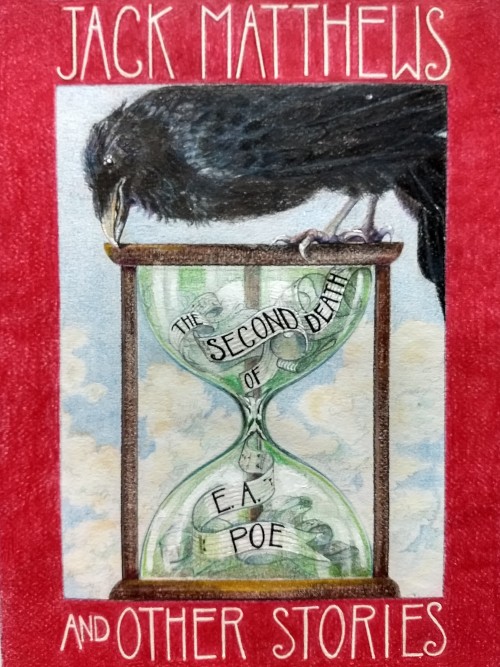
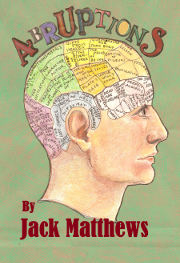
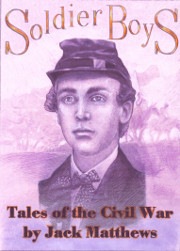
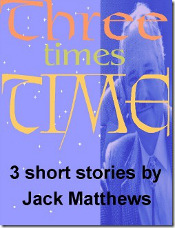
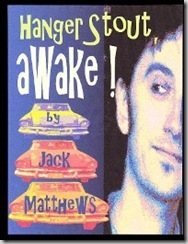
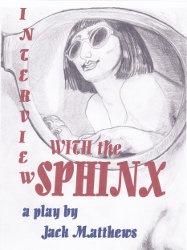



Mr Nagle: I have retired from Ohio U, and am getting ready to down size my home and belongings, including reducing my library as much as possible. I have copies of just about all of Jack;s books, signed and inscribed and dated, and I’d like to know if there is a collector who might like to purchase them reasonably.